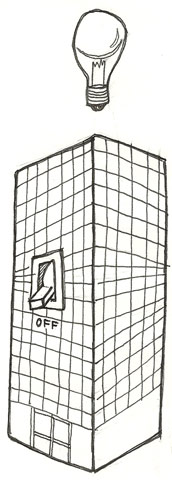Helping entrepreneurs with their startup requires you to begin from a place of surplus, with a reserve of certain capacities not easily measured. The obvious sort of capacity — developer time, designer time, wall space, team space — is the kind we’re perennially short of at Atomic, but which can be readily measured and planned. I realized, in the middle of a recent day-long project kickoff, that engaging with entrepreneurs requires personal reserves of optimism, creativity, persistence, patience and generosity of spirit.
We’ve always been generally aware that the current mix of projects, and the clients driving them, has a big impact on the mood and emotional state of our people. Some projects simply take more out of us, require more emotional energy, and generate more non-technical load. This became very clear to me at a personal level when I realized, in the middle of this project kickoff, that I couldn’t have done this work two months ago.
By the end of 2011 I was spent. Twelve new hires, six departures, starting a new embedded group, tripling our design capacity, experiments in governance, 25% growth in revenue, personal challenges — I was running on empty. If in November, I had attempted to kickoff the entrepreneur’s project we started this week, it would not have gone well. Happily for me, a break around the holidays and some intentional calming of the waters rebuilt my reserves.
The entrepreneurs we just started working with are friendly, smart people. They have interesting IP. They’ve done a lot of thinking already. They’re spending their own money. They selected Atomic because they felt a connection. They like to talk. They joke around and share life stories. They’re in love with their idea and have a detailed vision for what they want to create. They can effectively debate and discuss alternatives. They’re open to suggestions, but also have a strong sense of ownership for what they’ve designed so far. They’re making some optimistic assumptions. They need help to bring their ideas to life. They’re going to require a greater level of engagement than a typical project for a large corporation. It’s more personal.
Catching the vision and seeing the opportunity of a startup requires an initial suspension of disbelief and a reserve of optimism. It’s much easier to list reasons something won’t work than to help build up what might be made to work. Telling someone their baby is ugly, or at least has some ugly aspects, is not an easy job. It requires patience, tact, empathy and an underlying motivation to want to help. Proposing alternatives, recasting good ideas in slightly different directions takes creativity. You start to feel ownership and your clients become partners. You begin to invest yourself and care about the ultimate outcome. The problems and hurdles become personal. Your ideas make it into the product and it goes beyond just another project.
Our entrepreneurial clients absorb a lot of our time, attention, brains, and emotional energy. I realized with this project launch how vital it is both to our client’s and our own success to be operating from a position of surplus, not deficit, to have the capacity to give generously without feeling depleted.
- Attention: Spending Your Most Valuable Currency - February 10, 2022
- Slicing the Revenue Pie in a Multi-Stakeholder Company - July 30, 2021
- Commercial versus Existential Purpose - July 19, 2021
- How I Misunderstood Mentorship and Benefited Anyway - June 16, 2021
- Sabbath Sundays and Slow Mondays - June 4, 2021
